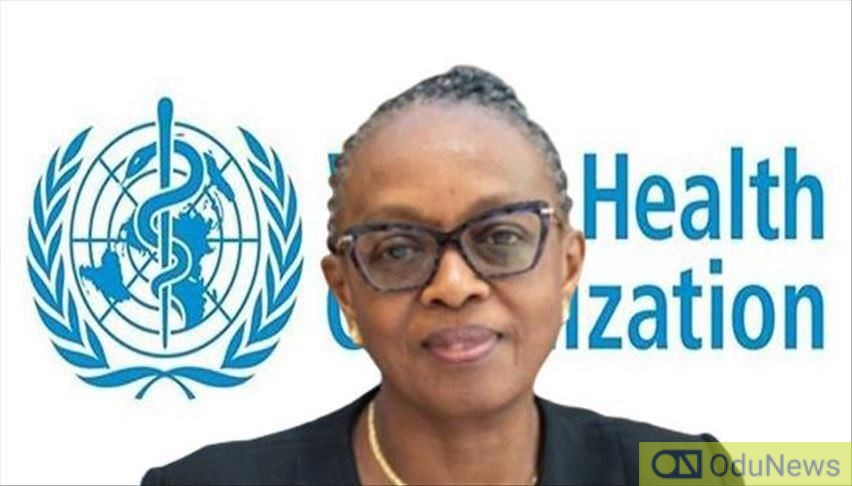The World Health Organisation has said that over 116 million people are living with mental health conditions in Africa.

It, therefore, called on African nations to strengthen mental health and psychosocial response in humanitarian emergencies, including COVID-19 and Ebola, which have a significant negative impact on school-age children and healthcare workers.
WHO Regional Director for Africa, Dr Matshidiso Moeti, who disclosed this in a message to mark the 2022 World Mental Health Day with the theme, “Make Mental Health and Wellbeing for All a Global Priority”, submitted that the exponential rates of alcohol use and abuse among adolescents remain particularly worrisome.
According to her, the theme serves as a reminder that, after nearly three years, the COVID-19 pandemic’s social isolation, fear of illness and death as well as difficult socio-economic conditions have contributed to an estimated 25 per cent global rise in depression and anxiety.
She observed that the global event, which holds every October 10, provides an opportunity to draw attention to Africa’s large and growing burden of mental health conditions, with children and adolescents worst impacted.
Moeti stressed the need to urgently strengthen regulatory systems to close the gaps that allow such young people to easily access alcohol, contributing to heavy episodic drinking rates as high as 80 per cent among teens from 15 to 19 years, adding that the situation poses a serious threat to their education while setting the stage for a lifetime alcohol abuse and associated risks of non-communicable and related diseases.
Her words: “Inadequate financing for mental health continues to be the biggest limitation, negatively impacting efforts to expand Africa’s mental health workforce. As things stand, there are fewer than two mental health workers for every 100,000 people, the majority of whom are psychiatric nurses and mental health nursing aids. With these scarce resources concentrated at large psychiatric institutions in urban areas, people at community and primary care levels are left critically underserved. For example, while two-thirds of the member-states report having guidelines to integrate mental health into primary healthcare, fewer than 11 per cent are providing pharmacological and/or psychological interventions at this level.”
The WHO official stated that it is heartening that up to 82 per cent of “our member-states are receiving training on how to manage mental health conditions at the primary care level, with up to 74 per cent reporting that specialists are involved in providing appropriate training and supervision to primary healthcare professionals.
“African governments have also made some progress on mental health spending, which has risen to 46 United States cents per person. But that is still well below the recommended $2 per person, with mental health not featuring in national health insurance schemes. To address the challenge, it is crucial that member-states follow through on the implementation of commitments they made at the Regional Committee in August 2022, when they endorsed the Framework to Implement the Comprehensive Global Action Plan 2013 to 2023 in the WHO African Region.”
BESIDES, the Chief Executive officer at Childcare and Wellness Clinic, Dr Yashua Alkali Hamza, has urged Nigerians to stop discriminating against people with mental health issues.
She also harped on the need to stop the practice of putting patients in handcuffs, which is prevalent in traditional psychiatric homes, saying there are better ways to approach even those that are violent among them
Hamza told The Guardian at the launch of the Wellness and Holistic Service provided by the clinic, yesterday, in Abuja, that many Nigerians, with mental health problems, are dying in silence due to the stigma attached to the sickness.
She called on the government to invest in mental health and professionals as well as create more awareness so people would know that mental health issue is not disease and there should not be any discrimination against patients.
Hamza added: “If people come out and talk about the mental issues that they go through, it will encourage others. A lot of people are dying inside, but we need to encourage people not to be ashamed if they have an issue of depression or anxiety. They should feel free to talk about their mental health.”
Also speaking, a family physician and Medical Director of, Childcare Awareness Clinic, Dr Monisola Ogunsanya, canvassed holistic care which goes beyond what happens in a hospital setting.
She said: “We want people to go back to nature to ameliorate their health. Apart from medication, counselling, physiotherapy, things like diet, exercise and how you sleep are critical to good mental health.”
Ogunsanya pointed out that there is so much stress in society, aggravated by COVID-19.


Comments are closed.